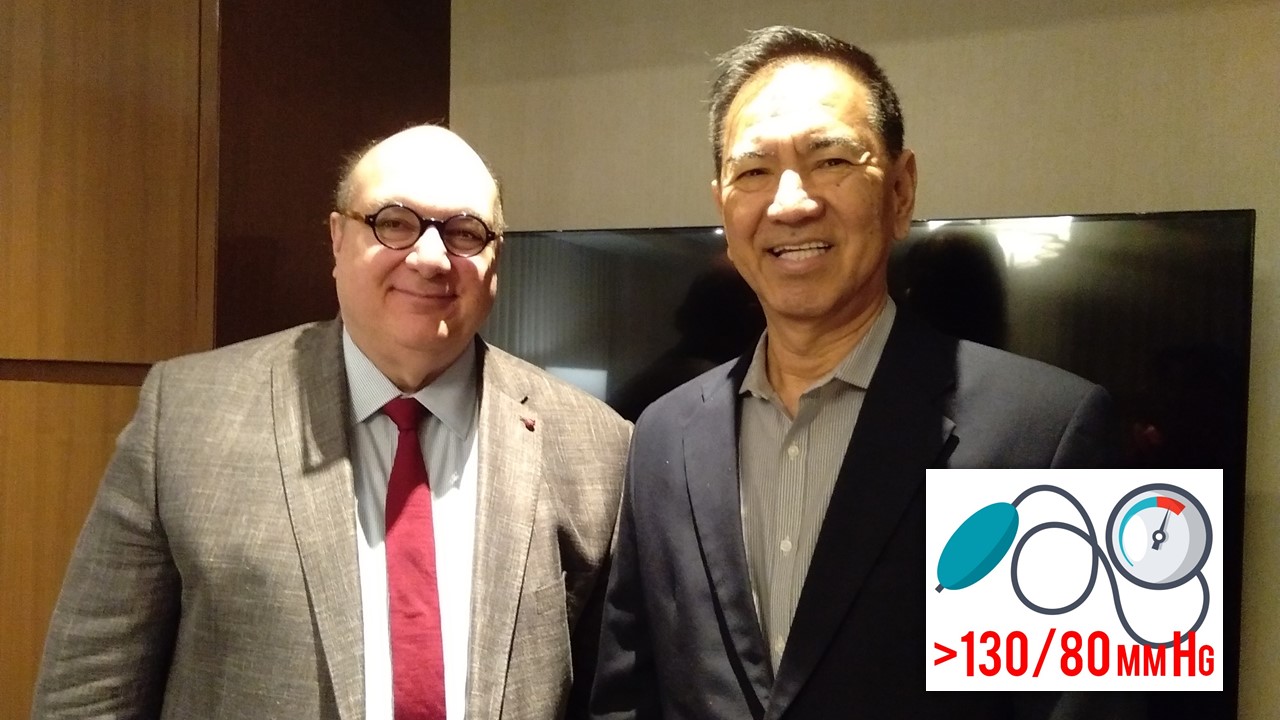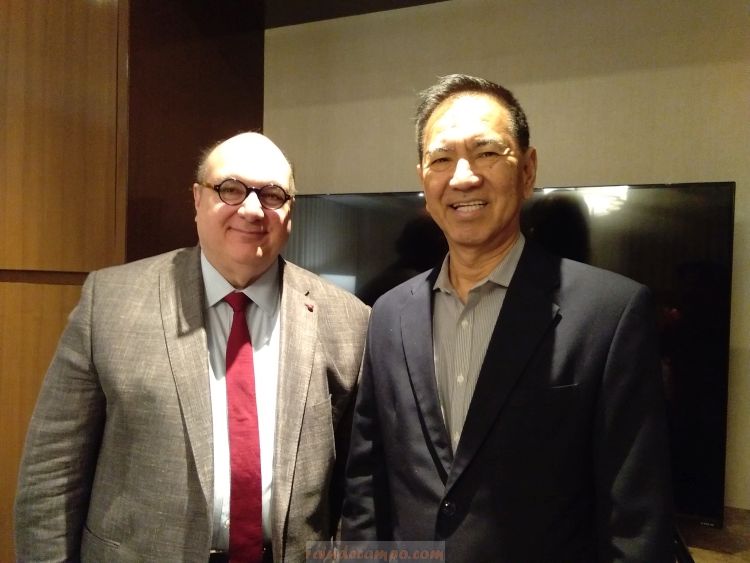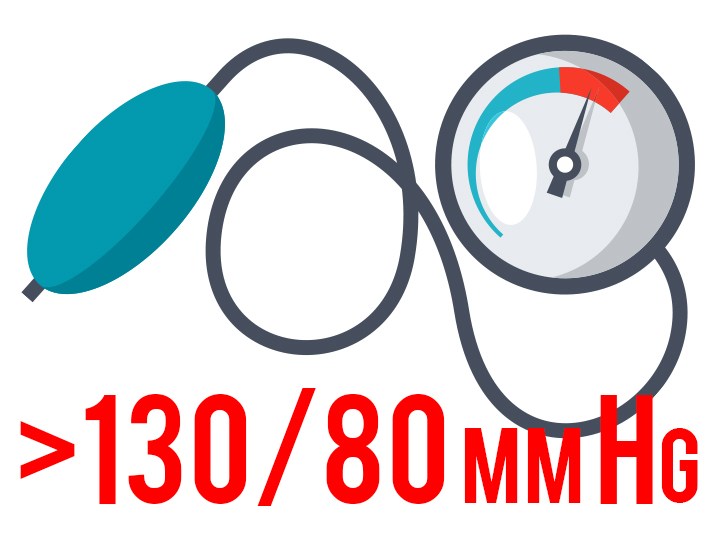The Philippine Society of Hypertension (PSH) recently sponsored a convention which gathered some of the top medical practitioners and cardiologists in the Philippines today.
The convention through its guests of medical experts in the field discussed the latest research and studies in understanding and managing hypertension and this includes Prof. George Bakris, MD of The University of Chicago Medicine.
Prof. Bakris was assigned as the keynote speaker for the convention and will primarily discuss updates and studies on the American College of Cardiology (ACC) hypertension guidelines where he is a member of the steering committee.
We had a chance to talk with Prof. Bakris and Dr. Alberto Atiliano, President of the Philippine Society of Hypertension last Saturday to get the gist of what is being discussed in the convention.
The Rule of Halves
According to the Department of Health, hypertension affects 1 out of 5 Filipinos based on a national survey released in 2017.
In relation to this survey, Dr. Atiliano explained during the intimate discussion the “Rule of Halves in Hypertension” which states that:
- Only half the people who have high blood pressure are aware that they have it
- Only half of those who are aware will receive treatments
- Only half of those who received treatments will achieve full control of the condition
According to Dr. Atiliano, the most vital key to treating hypertension is to increase efforts in terms of screening and follow-ups.
I cited that in the Philippines, there were already efforts in providing free blood pressure checks in popular drug stores – I asked if these activities helps in increasing the chances of people with hypertension to be treated.
“I think It is a noble project, we are continuing to collaborate with them. But this is different from our collaboration with DOH (Department of Health),” Dr. Atiliano explained. “We just pick an area close by, DOH will take care of the rural health doctors and barangay health workers while we will be doing the work with the private hospitals and private doctors and together we will follow one single protocol of data gathering. We hope to get the initial data after two years and see if we are getting a good control of the blood pressure.”
Prof. George Bakris, MD
For the part of Prof. Bakris, he stressed that there will be no arguments concerning the new ACC guidelines on Hypertension which brings it down to a low of 130/80 in the US while majority of Filipino medical practitioners are still okay with the 140/80 threshold.
Prof. Bakris is also a nephrologist and has made notable contributions to the treatment of kidney disease, with special expertise in diabetes-related kidney disease and methodology in slowing its progression.
We asked Prof. Bakris about the new ACC guidelines on Hypertension and here are his answers during the Q&A:
“I’ve been involved in many hypertension trials looking at cardiovascular outcomes and looking at blood pressure control,” Prof. Bakris said. “I’m going to talk about the latest guidelines. Its not new, it’s a perspective and so as a guideline writer I’m gonna give you a perspective on the guidelines in US and the perspective on the European guidelines and kind of have them compare. What’s important to do clinically, what a physician should be doing, what a patient should be doing, and the notion that you cant have one size fits all.”
“That’s a big mistake because while that number is good for many people it may not be good for other people and so it depends on what your risk profile is and what you can tolerate and you have to put that together.” Bakris added.
Risk Profiling Based on the New Guidelines
“The European guideline and the US guideline if you really put them together they are about 90% on the same page. So there aren’t huge differences they very much agree on many things in fact fundamentally the major disagreement/difference between the two is the number.”
“The American guideline is trying to force prevention and treatment and put it together so if your 35 and you have diabetes/kidney disease and you smoke. So that person is a higher risk and that person definitely need to lower their pressure. Then you have the 85 year old over here who doesn’t smoke, doesn’t have diabetes but their 85 and their pressures up and their arteries are very stiff so their blood pressures at 190/70. Now the US guidelines says that both those people need to be at 130. The 35 year old you will have no trouble at all fixing him. If you try to do that to the older person they’re either gonna be sleeping all day or they would have no memory or they wont be able to function.”
Many are saying that hypertension is a lifestyle problem is that correct? And were there any studies done for the Asian population and will that matter?
“Number 1, Hypertension is a genetic disease, if you talk to people and they have hypertension their family had hypertension. That’s the genetic type. When are you gonna develop it? If you have that gene type. If you will not follow the lifestyle recommendations then you’re gonna develop it a lot earlier. It depends on when you are developing the lifestyle and the lifestyle could be modified to reduce the pressure and reduce the risk.”
“For the Asian population, the data that exists largely comes from Japan, China or in the US with the Asian sub groups in the studies that were done which usually is ranging from 5-6% in the low end and 15-16% on the high end out of 5000 patients. Its not a huge database but if you take all that data together with Japan. It’s fairly significant, there’s not a lot of difference other than the salt and diet, there’s really not a lot of difference in terms of responses, there are different diseases but for blood pressure itself, the responses are not that different from what you see in the west.”
You mentioned earlier that there hasn’t been any new drug or medication that came out for decades. What would be some of the milestone activities in the last 10 years for the treatment of hypertension?
“It’s interesting, for hypertension the last drug that was approved in the US was in 2004 or 2003 and it was a sartan. That’s the only drug that is still not generic in the US, everything else has been generic for years. Why is that important? We have about 120 drugs in the states so if you cant really treat a patient somewhat if not perfectly or close to perfectly with those drugs then there’s either something weird with the patient or the patients not taking the drug. Now there are two drugs that are being developed that have differences in their chemistry for blood pressure and for kidney disease progression.”
- Google to Use DHL Express GoGreen Plus Service - July 27, 2024
- Taiwan at the Forefront of Green Economy - July 26, 2024
- Discover Tohoku in the Summer - July 25, 2024










